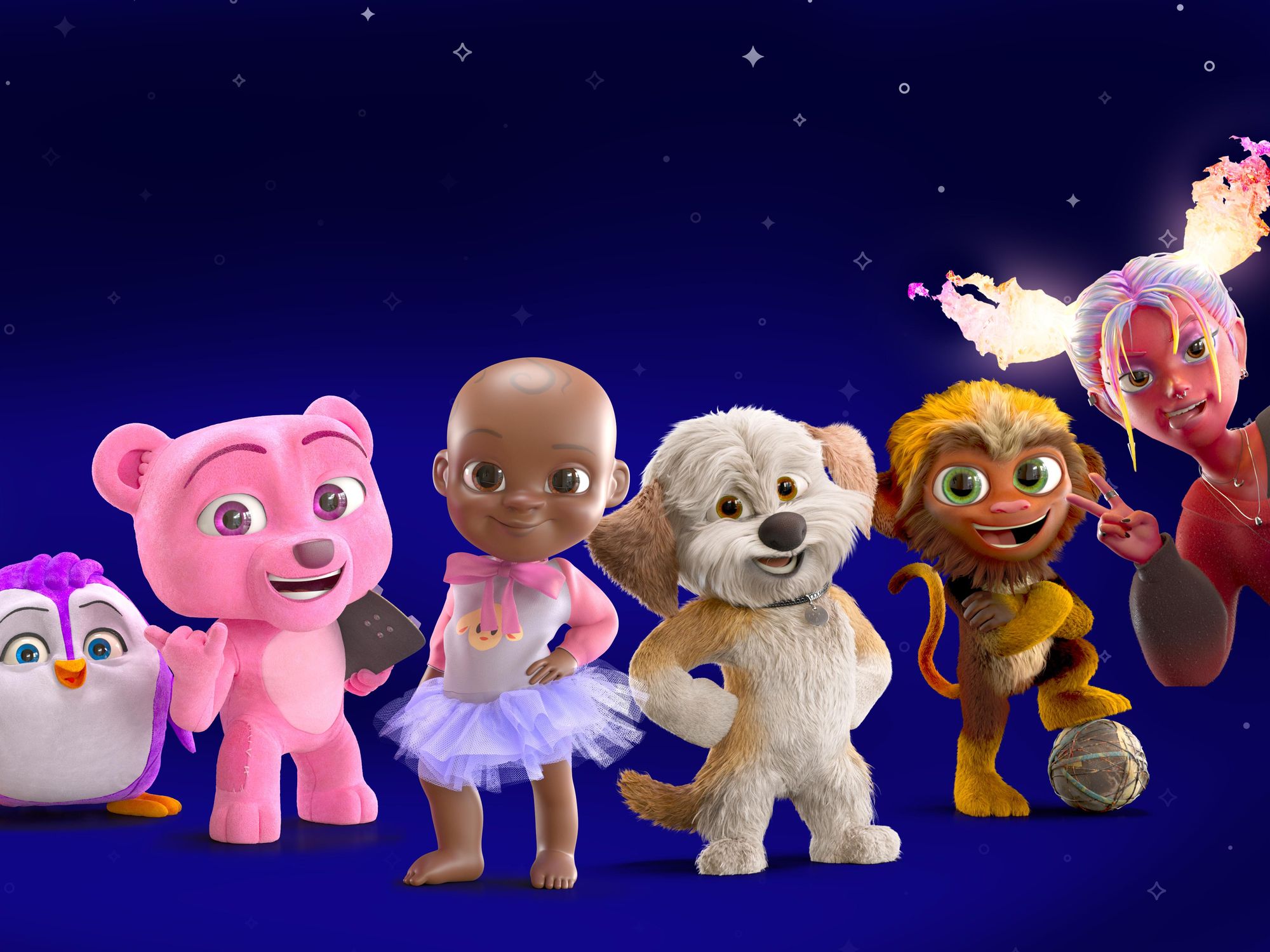‘Pixar of the Internet’ Invisible Universe Raises $12M
Christian Hetrick is dot.LA's Entertainment Tech Reporter. He was formerly a business reporter for the Philadelphia Inquirer and reported on New Jersey politics for the Observer and the Press of Atlantic City.

Invisible Universe, a self-described “Pixar of the internet,” has raised $12 million in Series A funding to build out its animated franchises.
Seven Seven Six, the venture capital firm of Reddit co-founder Alexis Ohanian, led the fundraising round. Cosmic Venture Partners, Dapper Labs and Spencer Rascoff’s 75 & Sunny participated in the raise, too. (Disclosure: Rascoff is co-founder and executive chairman of dot.LA.)
L.A.-based Invisible Universe partners with high-profile celebrities to create original animated characters that live on social media. Examples include Squeaky & Roy—the apparent long-lost toys of TikTok stars Charli and Dixie D’Amelio—as well as Qai Qai, a living doll that belongs to tennis legend Serena Williams’ daughter (Williams is married to Ohanian).
The animation studio posts videos of its characters on social platforms like TikTok, Twitter, Instagram and YouTube. Invisible Universe said it has more than 8.5 million followers across its accounts and an engagement rate above 10%.
By distributing intellectual property (IP) on social media, Invisible Universe aims to popularize its franchises on free platforms before commercializing them. The approach also allows the startup to share new content more frequently, instead of making fans wait months or years between new seasons or film installments, CEO Tricia Biggio told dot.LA.
When Invisible Universe does pitch its IP to streamers or toy companies, the startup can point to established fan bases to make its case, she said. After Qai Qai became a hit online, for example, the studio used the character’s IP to sell NFTs and develop a forthcoming children’s book authored by Williams, called “The Adventures of Qai Qai.” Invisible Universe is in the midst of shopping a series to streamers, but hasn’t closed a deal yet, she said.
“Most interestingly, we have tested the creative,” Biggio said. “I think for a studio or publisher—anyone that's agreeing to make an investment in your IP—for them to know that you've taken the time to test it and you've really built affinity through that, I think is a really powerful value proposition.”
Invisible Universe plans to use the fresh funds to launch more animated IP, expand to new platforms and further monetize its existing franchises. The company is also interested in delving into the world of Web3, a decentralized vision for the internet based on blockchain technology. This fall, Invisible Universe will launch a parody reality series on social media dubbed “The R3al Metaverse,” using characters based on popular NFT collections. The startup bought three NFTs and secured licenses for two more that fit well with the story, Biggio previously told dot.LA.
Seven Seven Six Co-founder Katelin Holloway, a former Reddit exec, likened Invisible Universe to Disney’s Pixar, where she served as a script supervisor. Holloway, an Invisible Universe board member, noted that popular IP is driving growth, audience retention and franchise expansions for entertainment companies.
“I saw the Pixar magic up close,” she said in a statement. “And [Invisible Universe] is building the same kind of unforgettable IP with an innovative approach that reduces both time and capital while embracing audience feedback.”
- Invisible Universe Inspires Serena Williams' First Book - dot.LA ›
- Invisible Universe's Tricia Biggio on Animation for Social Media - dot ... ›
- Invisible Universe's Plan to Bring Animation to Social Media - dot.LA ›
- NFT Show ‘The R3al Metaverse' Launches Via Invisible Universe - dot.LA ›
Christian Hetrick is dot.LA's Entertainment Tech Reporter. He was formerly a business reporter for the Philadelphia Inquirer and reported on New Jersey politics for the Observer and the Press of Atlantic City.



 Image Source: Revel
Image Source: Revel
